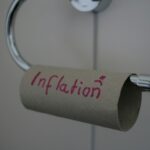While Zagreb out-shined its coastal rivals by far, the post-August drop is still steep.
As Marija Crnjak/Poslovni Dnevnik writes on the 28th of September, 2018, in September of this year, there were a total of 1.9 million tourist arrivals coupled with 9.2 million overnight stays in commercial facilities, as well as about 1.5 million overnight stays made by so-called ”weekenders”, equalling to about 2 percent more than was recorded last year.
Just like with the hot summer temperatures, the touristic results collected for the month of September in the Republic of Croatia cannot be measured along the same lines as the figures from the height of the tourist season, and therefore, the post-season cannot “repair” the touristic year, as is often spoken about in various circles.
By the time September rolled around, the level of traffic seen in August was more than halved, with three times less overnight stays spent in commercial facilities, according to data from eVisitor’s central information system until the 26th September.
In September, eVisitor counted a total of 1.9 million arrivals with 9.2 million overnight stays in commercial facilities, coupled with about 1.5 million overnight stays realised by so-called ”weekenders”, which is a total growth in the number of overnight stays by 2 percent when compared to last September, with about 7 percent more arrivals.
Hotels saw about three million overnight stays realised this September, a level which remains very much the same as was recorded last year.
Just over 3.28 million overnight stays were realised in private accommodation or other types of household facilities, which, during the month of August, recorded four times more overnight stays than in September.
Even campsites have a smaller difference in the results from the apartments, with 5.9 million overnight stays in August, the figure dropped to 2.1 million overnight stays in September, and likely owing to the warmer weather, they also experienced the highest growth, of 15 percent.
When comparing the number of registered beds with the number of overnight stays realised, it was found that since the very beginning of the month in the family/private accommodation sector, there were only 5.7 overnight stays realised per bed, campsites had slightly more to boast about with almost 9 overnight stays per bed, and hotels, with almost 18 overnight stays per bed, experienced the best traffic by far.
As a result, the number of overnight stays has risen by a few percentage points, with a drop of 8 percent for Šibenik-Knin County when compared to last September, while the largest growth (although still relatively small) has been recorded by the continental counties of Zagrebačka and Sisak-Moslavina.
Zagreb’s tourist traffic rose by 4 percent in September when it comes to overnight stays, outshining numerous coastal counties, including Split-Dalmatia, which saw a significant drop.
”As the number of overnight stays is more important than revenue, it is important to understand that prices in September are still 30-40 percent lower than they are during the height of the season,” explained Boris Žgomba, co-owner of Uniline Agency.
Click here for the original article by Marija Crnjak for Poslovni Dnevnik








